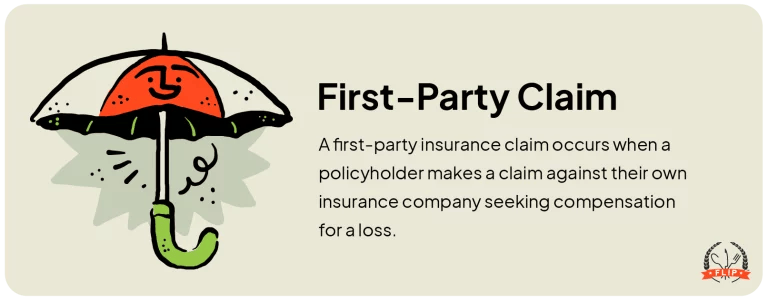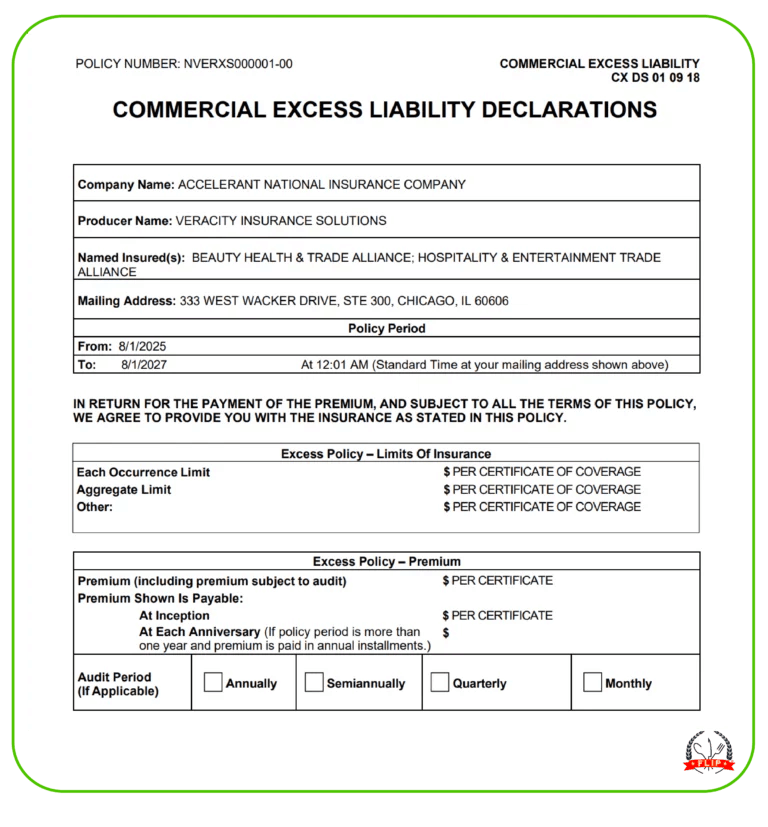First-Party Claim
What Is a First-Party Claim?
A first-party insurance claim occurs when a policyholder makes a claim against their own insurance company seeking compensation for a loss.
You, the person who purchased the policy, are the “first party.”

What Is the Difference Between a First-Party Claim vs. a Third-Party Claim?
A first-party claim is when the policyholder is filing a claim against their own insurance for benefits or reimbursement from a loss.
A third-party claim is when someone other than the policyholder is making a claim due to bodily injury, property damage, personal injury, or advertising injury. Most liability claims are third-party claims.
Who Files a First-Party Claim?
The owner of the insurance policy would make a first-party claim. This typically relates to damage to the policyholder’s property, for example:
- Fire damage to your business-critical property
- Theft of insured equipment
- A car accident involving your work vehicle
- Wind damage to an awning or tent
Any claim you make against your own policy would be considered a first-party claim.
What Do First-Party Claims Mean for My Insurance Policy?
If you make a first-party claim, your policy will probably remain the same. However, in some instances, your insurance company could choose not to renew your policy or may decide to increase your premiums.
This depends on several factors, including:
- The number of claims reported over a specific period
- The dollar amount paid on one or more claims
- The steps taken by the policyholder to reduce their risk
If your insurance company determines that you are at high risk for first-party claims, they may not renew your insurance or charge you more.
What Is the Claims Process With FLIP?
You can make a claim on your FLIP policy in four easy steps:
- Log in to your dashboard
- Click “File A Claim”
- Add all the necessary information
- A claims adjustor will contact you and the claim will be processed
First-Party Claim Example

Read More
- See also: Third-Party Claim
- See also: Bodily Injury
- See also: Personal and Advertising Injury
- See also: Liability
- See also: Claim
- Food Vendor Insurance Claims Process
- How to Avoid Common Food Truck Insurance Claims
- 4 Real Claims Caterers Face
